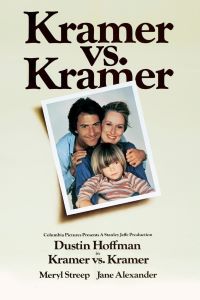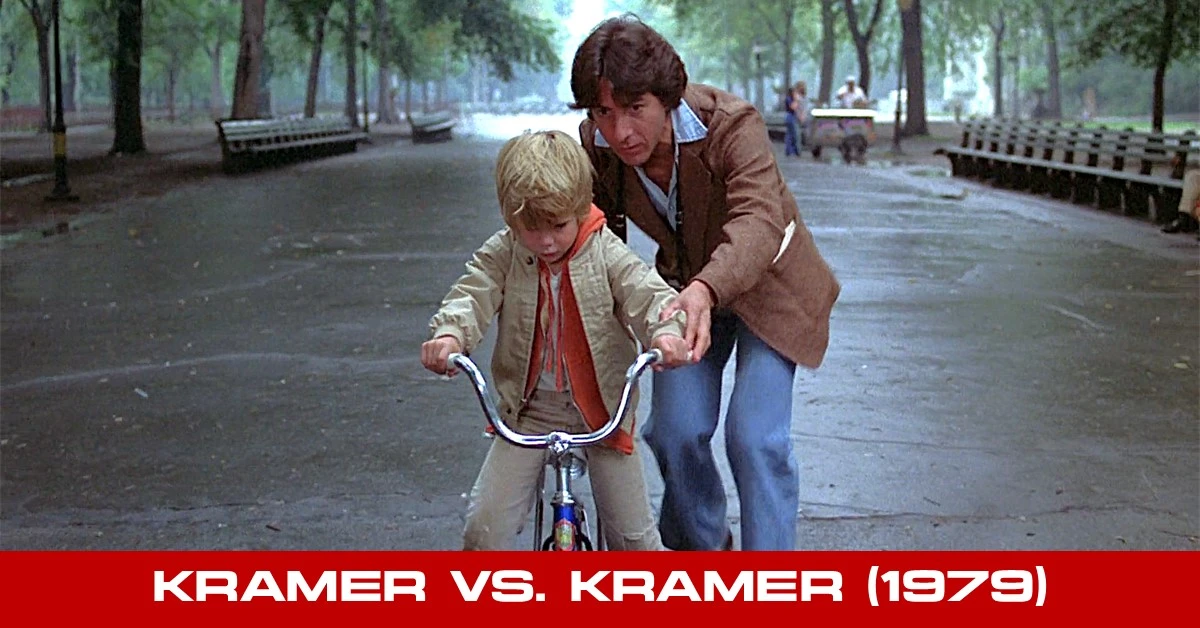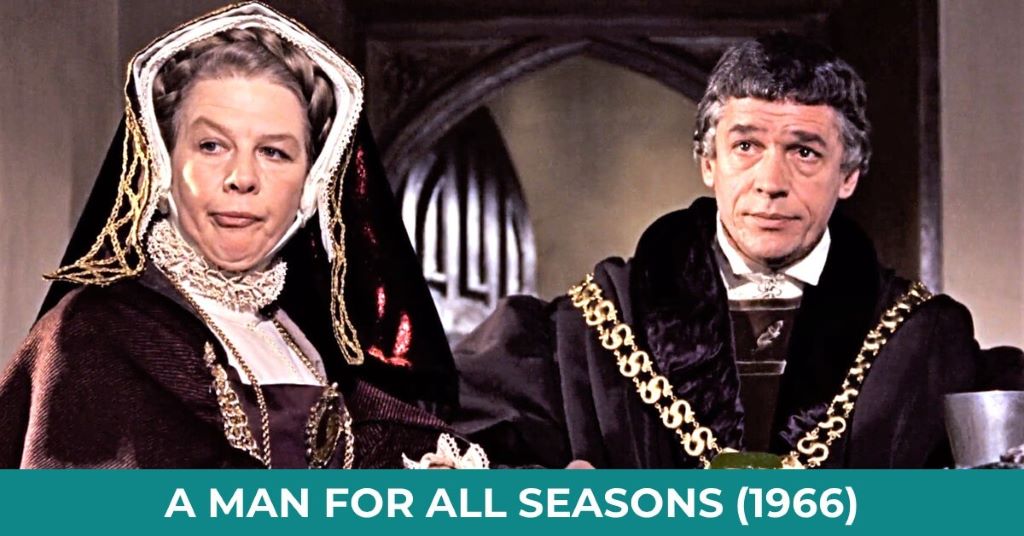Kramer vs. Kramer, the 1979 legal drama directed by Robert Benton, stands as one of the most profound and emotionally reverberating films I’ve ever watched. It tells the raw, heart-wrenching story of a family torn apart by divorce, with the complexities of custody battles explored in depth.
In the late 1970s, traditional gender roles dictated that men were the breadwinners and women were the primary caregivers, no matter how quantified women were for their respective fields. Kramer vs. Kramer challenged these stereotypes by presenting a father who, through necessity, steps into the role of a single parent and, in doing so, experiences a profound personal transformation.
The film has gained huge popularity because of its themes. Review aggregator website Rotten Tomatoes has 90% of 102 critics’ positive reviews, with an average rating of 8.20/10. The website states: “The divorce subject isn’t as shocking, but Kramer vs. Kramer is still a thoughtful, well-acted drama that resists the urge to take sides or give easy answers.” It has a score of 77 out of 100 on Metacritic.
Praising Benton’s screenplay, Roger Ebert of the Chicago Sun-Times gave the film four stars. Vincent Canby of The New York Times praises it as saying a “fine, witty, moving, most intelligent adaptation of Avery Corman’s best-selling novel”, with Streep giving “one of the major performances of the year”, and Hoffman “splendid in one of the two or three best roles of his career.” Gene Siskel of the Chicago Tribune gave the film four stars out of four.
Charles Champlin of the Los Angeles Times called it “as nearly perfect a film as can be”, and “a motion picture with an emotional wallop second to none this year”, while The Washington Post lauded Kramer vs. Kramer saying “a triumph of partisan pathos, a celebration of father-son bonding that astutely succeeds where tearjerkers like The Champ (1979) so mawkishly failed”.
Moreover, The New York Times and Time magazine published separate articles and in 2003, The New York Times placed the film on its Best 1000 Movies Ever list. Kramer vs. Kramer is one of the 101 best films I have been reviewing. “In a country where the lives of one million children are changed each year by divorce, the movie makers could hardly have picked a more provocative theme: writes The New York Times.

Time magazine puts in its 1980 article on Kramer vs Kramer: “More and more, single dads are rearing their children. While women still get custody in the overwhelming majority of divorces, between 1970 and 1978 the number of children under 18 living with divorced fathers jumped by 136%; close to 500,000 divorced U.S. fathers are now rearing sons and daughters without the help of a wife. At the same time, many other ex-spouses are trying another fast-spreading arrangement: joint custody, in which fathers and mothers share the responsibilities for the rearing of their kids”.
When I first watched Kramer vs. Kramer, I had no idea just how emotionally raw and thought-provoking the film would be. Released in 1979, directed by Robert Benton, and starring Dustin Hoffman and Meryl Streep, this movie isn’t just about divorce—it’s about love, responsibility, growth, and being responsible portents and bout the challenges of balancing family life in a rapidly changing world.
This film, starring Dustin Hoffman and Meryl Streep, goes beyond a simple courtroom drama—it’s a meditation on love, sacrifice, and the changing dynamics of parenthood in the face of personal crisis.
As someone deeply interested in how films reflect society, Kramer vs Kramer struck me as a narrative that feels both personal and universal.
The story centers around Ted Kramer (played by Dustin Hoffman), a workaholic advertising executive in New York, who is suddenly forced into single parenthood when his wife, Joanna (Meryl Streep), leaves him and their son Billy.
But as the weeks pass, Ted’s commitment to his son grows. The relationship between father and son develops organically, and watching Ted struggle yet rise to the occasion is incredibly relatable. It’s not just the day-to-day challenges that resonate; it’s the way Ted begins to understand and appreciate the love and responsibility that come with being a parent.
At first glance, Ted is an archetype of the time—detached, career-focused, and largely absent from his child’s life. The film begins with Ted’s world completely upended as Joanna walks out on him, claiming she is unfit to be a mother. This act of departure felt like the emotional earthquake that set the rest of the film in motion.
The struggles Ted faces—managing his demanding job while adjusting to the unfamiliar role of primary caregiver—are shown with a rawness that hit me on a deeply human level.
Initially, Ted is lost, unable to comprehend the practicalities of raising a child or the emotional demands of fatherhood. Billy, their seven-year-old son, is left confused and missing his mother, which only exacerbates Ted’s difficulties.
As a viewer, I found myself sympathizing with both father and son. Ted’s fumbling efforts to feed Billy, send him to school, and juggle the chaos of everyday life felt so real. I could relate to his frustration and guilt, watching as a once-distant parent is thrust into learning how to care for his child, albeit through painful trial and error. It reminds me of Jersey Girl (2004) where like Ted, Ollie Trinkle is forced to become a single dad after his wife’s sudden death giving birth to their daughter.
One of the most powerful moments in the film is when Billy falls from a jungle gym, injuring himself badly. Ted rushes him to the hospital in a moment that solidifies his transition from a mere provider to a deeply committed father. It was scenes like this—full of unspoken love and fear—that truly elevated the film beyond mere storytelling and into a reflection of the emotional complexities of parenting.
It reminded me of the tenderness that often underlies even the most strained relationships between parents and children.
The heart of the film, however, is the custody battle that follows Joanna’s unexpected return. Having left to “find herself,” Joanna reappears fifteen months later, now seeking to reclaim Billy.
What makes Kramer vs. Kramer so unique is its refusal to vilify either parent. Joanna’s decision to leave, while shocking, is portrayed with an understanding of her desperation. She explains that she had lost her sense of self within the confines of motherhood and the traditional expectations placed upon her.
Her character is not painted as cruel or heartless, but as a woman grappling with societal pressures, self-identity, and her own limitations. This, for me, was one of the film’s most powerful themes—its exploration of gender roles and the evolving expectations of mothers and fathers.
Ted’s fight to retain custody is emotionally devastating. The courtroom scenes are intense, with both parents’ flaws laid bare. Joanna’s lawyer attacks Ted for losing his job and for Billy’s playground accident, while Ted’s lawyer cross-examines Joanna’s abandonment. Watching this, I felt the tension of a legal system that often places undue emphasis on traditional maternal roles, especially during that era.
Interestingly, when Billy’s mother came to claim him from his father after she became financially stable, and when Ted refused, she determined to take the matter to a court of law. Unfortunately, Ted lost his job just before appearing the court making it certain to lose in the case as an incapable father. To appear in court as a capable father he needed to arrange a job within 24 hours, which he did.
The film doesn’t shy away from exposing how flawed and painful these proceedings can be, both for the parents and for the child caught in the middle.
What moved me most about Kramer vs Kramer was its final act. In a surprising turn, Joanna decides not to take Billy after winning custody case against Ted. She realizes that his true home is with his father, and in an act of profound love, she surrenders her rights. It was this moment that left me reflecting on the sacrifices that parents make, often against their own desires, for the sake of their children’s well-being. It’s a bittersweet resolution—there are no real winners, only a shared understanding that love for a child transcends personal grievances.
From a broader perspective, Kramer vs. Kramer not only tells the story of one family but also speaks to the cultural shifts of the late 1970s. The film reflects changing societal views on marriage, gender roles, and the complexities of work-life balance.
Ted’s journey from a work-obsessed executive to a dedicated father mirrors the evolving roles of men as more than just breadwinners. Likewise, Joanna’s struggle with her identity as a mother resonates with the feminist movements of the time, which challenged traditional domestic roles for women. Watching it now, these themes feel just as relevant as ever.
Kramer vs. Kramer was widely praised upon its release, winning five Academy Awards, including Best Picture, Best Director, and acting honors for Hoffman and Streep.
The performances are unforgettable, with both leads delivering emotionally charged, deeply authentic portrayals. Hoffman, especially, brings a vulnerability to Ted that is both heart-warming and heart-breaking. Meryl Streep, in her role as Joanna, adds layers of complexity to a character that could easily have been dismissed as unsympathetic. Together, their performances make the film a masterpiece of human emotion.
What makes Kramer vs. Kramer stand out is its honest portrayal of a family in crisis. The movie doesn’t rely on melodrama or simplistic portrayals of good versus evil; instead, it captures the complexity of human relationships with such honesty and empathy that it feels deeply personal.
It’s a film that asks tough questions about parenthood, sacrifice, and personal identity, all while keeping the narrative grounded in the day-to-day realities of life.
From a personal perspective, I was struck by how the film doesn’t judge its characters, but rather invites the viewer to understand their motivations. It doesn’t offer easy solutions but leaves you thinking long after the credits roll. As a viewer, you can’t help but empathize with both Ted and Joanna. It’s a story that reminds us that love is not always enough to keep a family together—but the willingness to change and grow for the ones we love often is.
As someone who has experienced the evolving dynamics of family relationships, I couldn’t help but empathize with Ted’s journey. His shift from frustration to fulfillment is a reminder of how love and responsibility often require personal sacrifices and profound change.
Dustin Hoffman and Meryl Streep: A Dynamic Duo
Dustin Hoffman, known for his incredible roles in The Graduate (1967) and All the President’s Men (1976) also shines in his role as Ted Kramer.
He presents Ted as a character who is initially selfish, overworked, and somewhat unaware of the emotional needs of his family, but through his journey, Hoffman portrays the growth of a man who discovers the depths of his love for his son.
His performance is heart-wrenching yet relatable; you feel his mistakes, his frustration, and his eventual triumphs as he learns how to be a more empathetic and present father.
Meryl Streep, in what was arguably one of her breakthrough roles, portrays Joanna with such depth and subtlety. While she initially appears as a woman seeking independence, Streep masterfully portrays the conflicting emotions of a mother who loves her son but also yearns for personal fulfillment. The complexity of her character is one of the film’s strongest aspects, as it doesn’t reduce her to the typical “villain” or “hero” archetype.
Instead, Joanna is a multifaceted character who struggles to reconcile her own desires with her responsibilities as a mother.
The Custody Battle
The courtroom scene in Kramer vs Kramer is one of the most emotionally charged parts of the film.
It’s a heart-wrenching exploration of the complexities of love, responsibility, and the deep yearning of both parents to do what’s best for their child. This is not a clear-cut case of right and wrong. Each parent has their own valid reasons for wanting custody, and neither is perfect. But through this battle, the film explores the emotional cost of separation and the ways in which both parents are forced to confront their past decisions.
What I found particularly impactful was how the film avoided portraying the divorce and custody battle as a simple good vs. evil story.
Instead, it shows the messy, painful reality that both parties endure. It’s easy to relate to both Ted and Joanna as they grapple with their own feelings of inadequacy and regret, all while trying to act in Billy’s best interests. The courtroom battle is not just about custody; it’s a battle for redemption, for proving that they are good parents who deserve the right to care for their children.
Ted wanted to prove that it’s not only women but men also can be better and fit parent to take care children.
The Impact of the Film
Kramer vs. Kramer was groundbreaking for its time. The film won five Academy Awards, including Best Picture, Best Director, Best Actor for Hoffman, and Best Supporting Actress for Streep.
But more than just a collection of accolades, Kramer vs. Kramer made a lasting impact on how we view family dynamics, divorce, and parenthood in cinema. It was one of the first mainstream films to seriously explore the emotional toll of divorce from both parents’ perspectives.
For me, the film is a reminder that life is messy and that the road to personal growth is often fraught with obstacles. It’s a film that acknowledges the difficulty of change but also celebrates the possibility of redemption and growth. It’s about finding the strength to take responsibility for your actions, no matter how painful that may be.
Main Themes of Kramer vs. Kramer
Along with “Parenthood and Personal Growth”, “Gender Roles and Identity”, Kramer vs. Kramer explores into the shifting societal expectations of mothers and fathers in the late 1970s.
Joanna’s struggle with her identity as a stay-at-home mother and her departure to find herself addresses the pressures women face, while Ted’s transformation challenges traditional notions of fatherhood.
The primary theme “Divorce and Custody Battles” deals with the emotional toll of divorce, particularly on children. The custody battle between Ted and Joanna is depicted in a raw, realistic way, showing how the legal system often complicates family dynamics and affects both parents and children.
While people in advanced nations are marrying late and cohabitations before marriage increased so did the frequencies of divorce. Data suggest that only 1.5% of couples had divorced before their fifth anniversary in 1963, 7.8% had divorced before their tenth, and 19% before their twentieth anniversary, but by the mid-1990s this had increased to 11%, 25% and 38%, respectively.
According to the National Center for Family & Marriage Research (NCFMR), 60% of marriages where both partners are under 25 end in divorce within 10 years
Likewise, separating is on the rise. As reports suggest, about 40% of children experience divorce from their parents before the age of 18. However, unlike Ted and Ollie women head the majority of single-parent households, and this gender gap tends to be stronger for parents of younger children. Across OECD countries, about 12% of children aged 0-5 years live with a single parent; 92% of these live with their mother, according to OurWorldInData.
The film emphasizes the sacrifices parents make for their children. Joanna’s decision to leave Billy with Ted at the end reflects the selflessness of true love, where both parents recognize what is best for their child, even at the cost of their own desires.
Ted’s initial focus on his career contrasts with his later realization of the importance of being present for his son. The film critiques the pressures of work-life balance, showing how one’s career can interfere with family responsibilities and personal fulfillment.
Conclusion
In conclusion, Kramer vs. Kramer is more than just a courtroom drama about divorce; it’s a story about personal growth, the bond between parent and child, and the difficult choices that come with love and responsibility.
It’s a film that leaves you reflecting long after the credits roll, and for me, it was a deeply personal viewing experience.
Watching Ted’s transformation and Joanna’s struggle reminded me that being a parent, like being human, is messy, complicated, and often full of heartache—but it’s also filled with moments of profound love and grace.
Suggestions
Here are 20 films that are similar to Kramer vs. Kramer, focusing on themes of family, divorce, parenthood, and personal growth:
- 1. Ordinary People (1980) – A family struggles to cope with grief and guilt after the death of a son.
- 2. The Pursuit of Happyness (2006) – A father fights against all odds to provide for his son and build a better future.
- 3. Marriage Story(2019) – A powerful exploration of divorce and the emotional toll it takes on a couple and their child.
- 4. Boyhood (2014) – A coming-of-age story following a boy’s life from childhood to adolescence, focusing on his relationship with his parents.
- 5. The Squid and the Whale (2005) – A darkly comedic look at a family falling apart during a contentious divorce.
- 6. Stepmom (1998) – A heartfelt drama about a terminally ill mother and the new woman in her ex-husband’s life trying to build a relationship with the children.
- 7. A Separation (2011) – An Iranian drama that depicts a family struggling with the decision of divorce, highlighting complex family dynamics.
- 8. Still Alice (2014) – A professor dealing with early-onset Alzheimer’s disease faces challenges in her relationships with her family.
- 9. Terms of Endearment (1983) – A multi-generational look at the relationship between a mother and daughter, filled with love, conflict, and family dynamics.
- 10. The Father (2020) – A powerful film about aging, dementia, and the emotional impact it has on a father and his daughter.
- 11. Little Children (2006) – A drama about suburban life, parenting, infidelity, and the search for happiness.
- 12. About a Boy (2002) – A bachelor finds his life transformed when he forms an unexpected bond with a young boy and his troubled mother.
- 13. Big Daddy (1999) – A light-hearted take on an irresponsible man who unexpectedly becomes the guardian of a young boy.
- 14. Pieces of April (2003) – A poignant drama about a dysfunctional family attempting to reconnect over a Thanksgiving meal.
- 15. The Kids Are All Right (2010) – A modern family drama about two children of lesbian parents who seek out their biological father.
- 16. Hope Floats (1998) – A woman rebuilds her life with her daughter after her husband leaves her for another woman.
- 17. We Bought a Zoo (2011) – A widowed father buys a zoo to give his family a fresh start, focusing on the healing power of family.
- 18. My Life (1993) – A terminally ill man makes video diaries for his unborn son as he reflects on life and family.
- 19. The Blind Side (2009) – The true story of a family that adopts a homeless teenager and helps him pursue a football career.
- 20. Parenthood (1989) – A comedy-drama about the challenges and rewards of being a parent, showcasing multiple family dynamics.






